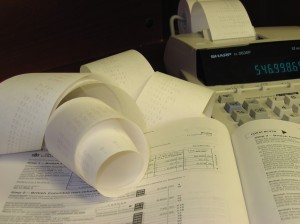 MADISON, Wisc. — A federal judge in Wisconsin has struck down a nearly 60-year-old law that allows pastors in the nation an exemption from paying taxes on their housing allowance.
MADISON, Wisc. — A federal judge in Wisconsin has struck down a nearly 60-year-old law that allows pastors in the nation an exemption from paying taxes on their housing allowance.
The Wisconsin-based Freedom From Religion Foundation (FFRF) had filed suit in August of last year, challenging the 1954 “parish exemption” granted by Congress.
“In the case of a minister of the gospel, gross income does not include (1) the rental value of a home furnished to him as part of his compensation; or (2) the rental allowance paid to him as part of his compensation, to the extent used by him to rent or provide a home and to the extent such allowance does not exceed the fair rental value of the home, including furnishings and appurtenances such as a garage, plus the cost of utilities,” the pertinent statute states.
U.S. Representative Peter Mack, who introduced the legislation, was said to have introduced the law in order to reward ministers for working to fight against wickedness in the land.
“Certainly, in these times when we are being threatened by a godless and anti-religious world movement we should correct this discrimination against certain ministers of the gospel who are carrying on such a courageous fight against this foe,” he stated. “Certainly this is not too much to do for these people who are caring for our spiritual welfare.”
FFRF had sued U.S. Treasury Secretary Jacob Lew and acting IRS Commissioner Daniel Werfel, asserting that the tax exemption violated the Establishment Clause of the First Amendment and the equal protection provision of the Fourteenth Amendment. The organization claimed that it was unfair for clergy to receive the tax break while others, such as the founders of FFRF, must pay taxes on their housing allowance.
“[I]t is pure discrimination to deny atheist leaders the housing allowance privileges given to clergy as a reward for fighting ‘godless foe,'” co-founder Annie Laurie Gaylor stated.
On Thursday, U.S. District Barbara Crabb, appointed by Jimmy Carter, agreed with FFRF, declaring section 2 of the tax code unconstitutional.
“Because a primary function of a ‘minister of the gospel’ is to disseminate a religious message, a tax exemption provided only to ministers results in preferential treatment for religious messages over secular ones,” she wrote.
“Although it is undoubtedly true that taxes impose a burden on ministers, the same is true for all taxpayers,” Crabb continued. “Defendants do not identify any reason why a requirement on ministers to pay taxes on a housing allowance is more burdensome for them than for the many millions of others who must pay taxes on income used for housing expenses.”
She then placed an injunction the enforcement of the code, stating that if Congress desired, it could rewrite the law to include those of no faith.
“[I]f Congress believes that there are important secular reasons for granting the exemption in § 107(2), it is free to rewrite the provision … so that it includes ministers as part of a larger group of beneficiaries,” she stated.
Reports state that unless the ruling is appealed and ultimately overturned, it could have a significant impact on pastors nationwide.
“Once the clergy get wind of it, I expect they will be very upset,” Gaylor told the Wisconsin State Journal.
Become a Christian News Network Supporter...


